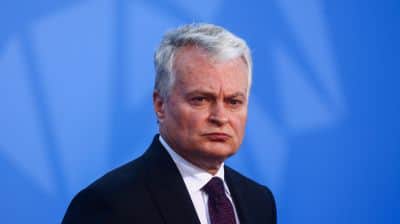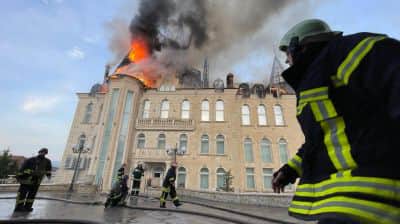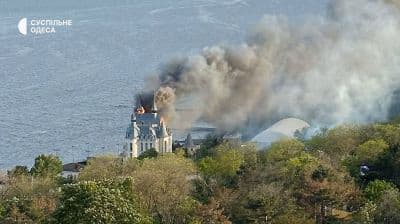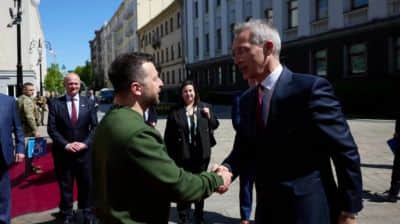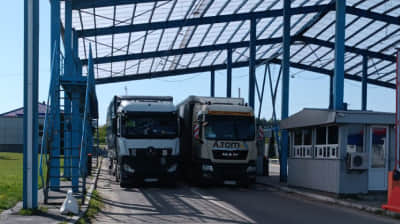Russian forces will be able to launch large-scale offensive in one operational area – ISW
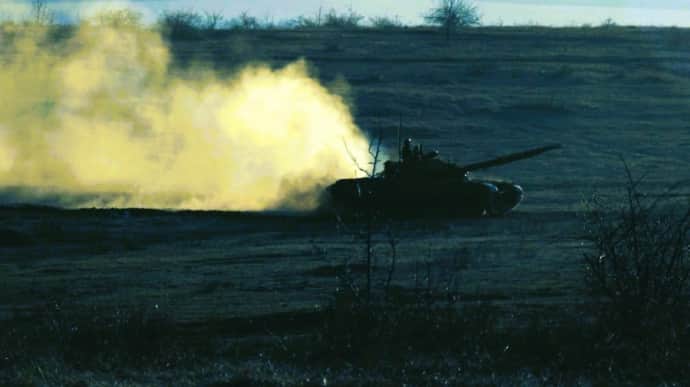
Analysts at the Institute for the Study of War (ISW) have suggested that Russia may concentrate a large-scale offensive in the western part of Donetsk Oblast in late spring or summer, adding that Russian troops will be able to launch an offensive in only one operational area.
Source: ISW
Details: Russian commanders will likely focus their projected offensive on the western part of Donetsk Oblast in late spring or summer 2024, hoping to exploit steady but small advances by Russian forces in the area.
Ukrainian officials have recently cautioned that Russia is building up forces along the Kharkiv-Luhansk axis, near the war-torn towns of Bakhmut and Avdiivka, and in the western part of Zaporizhzhia Oblast. However, ISW believes that Russian forces are likely to be able to launch a concerted large-scale offensive in only one operational area due to limited manpower and planning.
In addition, ISW noted that Ukrainian forces appear to have repelled a Russian battalion-sized mechanised attack near Avdiivka on 30 March – the first battalion-sized mechanised attack since Russian forces launched their campaign to capture Avdiivka in late October 2023.
Russian forces, including units of the Russian 6th Tank Regiment (90th Tank Division, Central Military District [MD]), reportedly engaged 36 tanks and 12 infantry fighting vehicles (IFVs) in a large-scale mechanised assault near the village of Tonenke on 30 March.
At the same time, Ukrainian forces destroyed 12 Russian tanks and eight IFVs during the assault, and the Russian frontal assault failed to break through the Ukrainian lines.
Analysts believe that Ukraine's ability to repel the 30 March offensive, especially near Avdiivka, where Ukrainian forces had to quickly retreat to new defensive positions after losing the town, is a positive indicator of Ukraine's ability to defend itself against future large-scale Russian attacks and Russia's expected offensive in the summer of 2024.
At the same time, the willingness of the Russian military command to deploy a battalion of tanks to the offensive near Avdiivka indicates that this offensive is a priority for the Russians.
To quote the ISW’s Key Takeaways on 1 April:
- The Kremlin-controlled Russian Orthodox Church Moscow Patriarchate (ROC MP) reportedly directed all its clergy to change their liturgy to include pro-war prayers in support of Russia’s war of conquest against Ukraine and is likely threatening to defrock ROC MP clergy who do not support the war.
- The ROC MP leadership has intensified internal scrutiny against ROC MP clergy and has reportedly defrocked several clergy members who refused to promote Kremlin-introduced prayers supporting Russia’s full-scale invasion of Ukraine.
- Russia conducted another series of missile and drone strikes largely targeting Ukrainian energy infrastructure on the night of 30 to 31 March as delays in US security assistance continue to degrade Ukraine’s air defence umbrella and enable Russia to significantly damage Ukraine’s energy grid.
- Ukrainian forces appear to have repelled a Russian battalion-sized mechanised assault near Avdiivka, Donetsk Oblast, on 30 March — the first battalion-sized mechanised assault since Russian forces began the campaign to seize Avdiivka in late October 2023.
- French Defence Minister Sébastien Lecornu announced on 31 March that France will provide an unspecified number of Aster 30 surface-to-air missiles and "hundreds" of armoured vehicles and other equipment to Ukraine.
- Russian President [leader – ed.] Vladimir Putin signed on 31 March the scheduled decree authorising Russia’s semi-annual spring military conscription, which will conscript 150,000 Russians between 1 April and 15 July.
- The Russian military command reportedly appointed Chief of Staff of the Russian Ground Forces Colonel General Alexander Lapin as commander of the newly formed Leningrad Military District (LMD).
- The Kremlin continues efforts to enforce Russian federal laws in post-Soviet countries where Russia has no legal jurisdiction.
- Russian authorities conducted a counterterrorism operation and detained suspected terrorists in the Republic of Dagestan on 31 March.
- Russian forces recently made confirmed advances near Avdiivka and southwest of Donetsk City on 31 March.
- The Russian government continues to fail to properly compensate volunteer and irregular forces fighting in Ukraine, despite recently passing new legislation that simplifies the access to veteran statuses for these servicemen and their families.
Support UP or become our patron!


